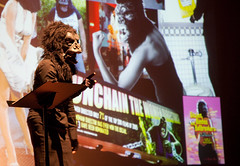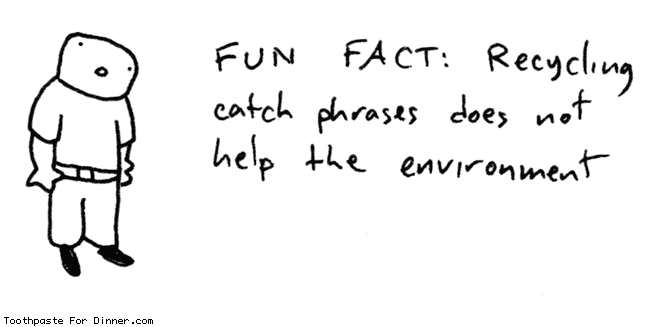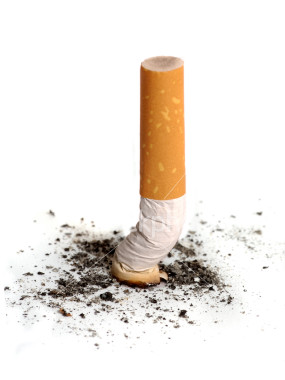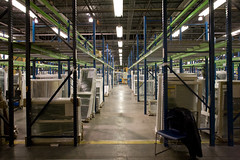Erin Franzinger: April 2009 Archives
Click here for information from the University of Chicago on Swine Flu.
Concern about the H1N1 influenza strain known as swine flu has been steadily mounting over the last week. Confirmed cases had been mostly limited to California, Texas, and New York, but on Tuesday afternoon a Chicago student at Kilmer Elementary in Rogers Park was diagnosed with the infection. Kimberly Goff-Crews, Dean of Students in the University, reports that two hospital staff may be infected but are recovering at home. Several probable cases have been reported elsewhere in the city, in the suburbs, and in collar counties. What does this mean and what should Chicagoans be doing about it? According to the Center for Disease Control, normal hygiene practices should provide protection against infection, and individuals who believe they may be infected should seek medical treatment if symptoms become severe. In short, thinking of the outbreak like a particularly nasty strain of seasonal flu might well be better than the simmering panic beginning to erupt from various quarters.
Overblown or not, the situation has opened up some interesting discussions about public health. The Big Money asks some interesting questions about the economic and business side effects of the outbreak, and Amanda Marcotte explores the links between factory farms and human health.
Concern about the H1N1 influenza strain known as swine flu has been steadily mounting over the last week. Confirmed cases had been mostly limited to California, Texas, and New York, but on Tuesday afternoon a Chicago student at Kilmer Elementary in Rogers Park was diagnosed with the infection. Kimberly Goff-Crews, Dean of Students in the University, reports that two hospital staff may be infected but are recovering at home. Several probable cases have been reported elsewhere in the city, in the suburbs, and in collar counties. What does this mean and what should Chicagoans be doing about it? According to the Center for Disease Control, normal hygiene practices should provide protection against infection, and individuals who believe they may be infected should seek medical treatment if symptoms become severe. In short, thinking of the outbreak like a particularly nasty strain of seasonal flu might well be better than the simmering panic beginning to erupt from various quarters.
Overblown or not, the situation has opened up some interesting discussions about public health. The Big Money asks some interesting questions about the economic and business side effects of the outbreak, and Amanda Marcotte explores the links between factory farms and human health.
A reminder to all photographers: the Chicago Studies Flickr Pool is always looking for new views of the city. Here are some of my favorites:



www.toothpastefordinner.com
The University campus is bustling with Earth Week activity. Many of these events challenge the traditional boundaries of environmentalism, expanding the definition of sustainability. One such event was Monday night's "Sustainable Sex: An Information Orgy." This exploration of queer- and eco-friendly sex practices explored "green sex," touching on topics as varied as vegan lube, organic aphrodisiacs, and eco-safe sex toys. Third year Dave Klein attended the event and said he appreciated "the creative approach to integrating environmentalism into a facet of life where it usually isn't a concern."
Coming up on Thursday, students from Green Campus Initiative have organized a vermiculture workshop. Attendees will learn how to maintain a self-sufficient compost bin that's a perfect fit for students who have small kitchens and a potted plant or two.
Thursday evening, the Feminist Majority will lead an Alternative Menstrual Products teach-in, sharing information about products like the Diva Cup, Luna Pads, sea sponges, and other reusable, healthy alternatives to disposable tampons and pads.
What is common to all of these events (aside from the fact that my mother would be aghast at any of them) is an imaginative approach to taking personal responsibility for environmental consciousness. Check out the Chicago Studies Calendar for more events!
 Recent legislation has pushed cigarette taxes higher nationally as well as in Cook County. Two weeks ago, a pack of Camel Filters might have cost anywhere between $7 and $8. Now a pack is pushing $9. With some of the income being used to pay down Medicaid debt, it's hard to argue against this tax increase on what is essentially a luxury item.
Recent legislation has pushed cigarette taxes higher nationally as well as in Cook County. Two weeks ago, a pack of Camel Filters might have cost anywhere between $7 and $8. Now a pack is pushing $9. With some of the income being used to pay down Medicaid debt, it's hard to argue against this tax increase on what is essentially a luxury item. What effects will this price increase have on smokers? Certainly some (hopefully myself included) will use this as an opportunity to quit or cut back, immediately benefiting both wallet and lung capacity. Others will look elsewhere for their fix-- in the collar counties and Indiana in particular. These factors combined may well decrease revenue for the state.
In other public health related news, apparently KFC (as in the fried chicken joint) is offering to repair Chicago's potholed roads in exchange for some advertising space -- spray painted onto the repair. Mayor Daley is entertaining the offer but holding out for some cash incentives.
There's a lot to think about here-- personal and public health, state revenue, freedom of bodily autonomy, the relationship between corporations and civic space... Do you think the cigarette price jump will significantly affect anything? Will people just buck up and pay the extra money for convenience? What about a private corporation doing the job of a city or state bureau? Can we stand any more advertisements invading our space?





Recent Comments
Chelsea26 on The Year of the Jello Mold: faxless pa
burn fat on Survival tips for living in our lake-side tundra: Hello! Do
makeup on A Garden Story: Excellent
literki dla dzieci on Piecing Together Chicago History: The Archeology Practicum: YOUR INFOR
temple run download on South Side students say to IOC: "No Games!": Thankfulne
continue reading on 'You Gotta Go Get It': Caesarei Marsh of the Living Room Cafe in Woodlawn: Hey, is it
buy poppers on Remembering "The Killing Floor": A Look at Chicago's Labor Union History: I am reall
plumbing fixtures houston on Haiti Earthquake Response: What's up
Trisha on Baseball, Econ & Museums? Oh My! - Spring Courses Roundup: I like rea